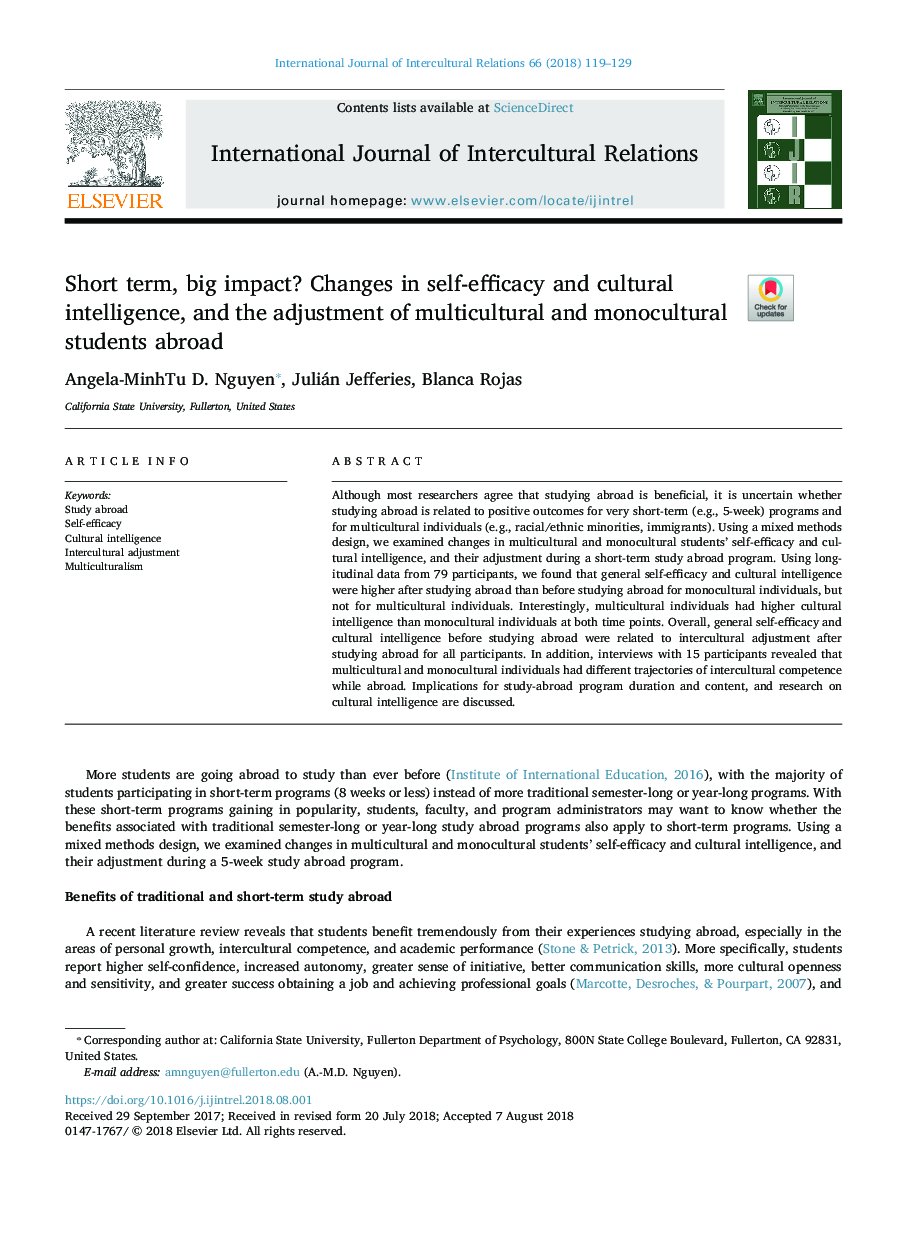| Article ID | Journal | Published Year | Pages | File Type |
|---|---|---|---|---|
| 11004708 | International Journal of Intercultural Relations | 2018 | 11 Pages |
Abstract
Although most researchers agree that studying abroad is beneficial, it is uncertain whether studying abroad is related to positive outcomes for very short-term (e.g., 5-week) programs and for multicultural individuals (e.g., racial/ethnic minorities, immigrants). Using a mixed methods design, we examined changes in multicultural and monocultural students' self-efficacy and cultural intelligence, and their adjustment during a short-term study abroad program. Using longitudinal data from 79 participants, we found that general self-efficacy and cultural intelligence were higher after studying abroad than before studying abroad for monocultural individuals, but not for multicultural individuals. Interestingly, multicultural individuals had higher cultural intelligence than monocultural individuals at both time points. Overall, general self-efficacy and cultural intelligence before studying abroad were related to intercultural adjustment after studying abroad for all participants. In addition, interviews with 15 participants revealed that multicultural and monocultural individuals had different trajectories of intercultural competence while abroad. Implications for study-abroad program duration and content, and research on cultural intelligence are discussed.
Related Topics
Social Sciences and Humanities
Business, Management and Accounting
Business and International Management
Authors
Angela-MinhTu D. Nguyen, Julián Jefferies, Blanca Rojas,
